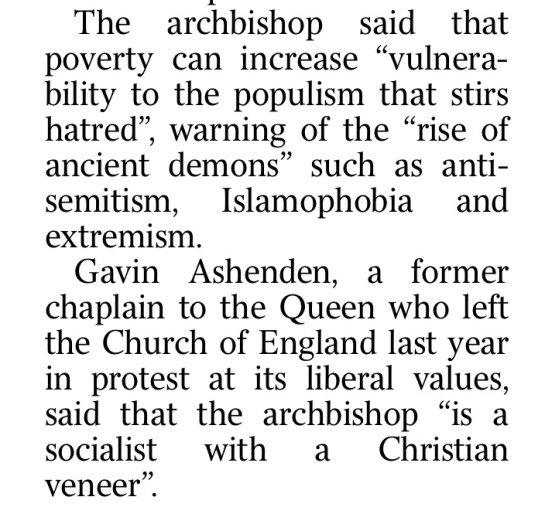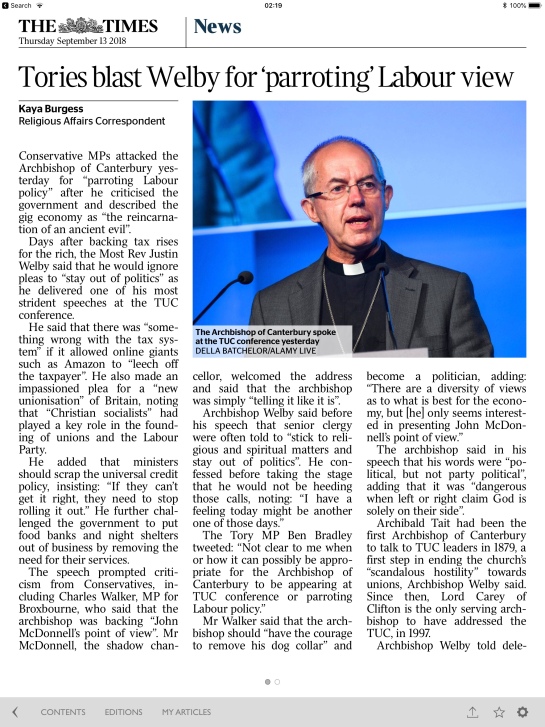via Episode 4.
The Doctrine of Divine Simplicity and the Principium Essendi
This is so good. If you are developing or just starting out on having a doctrine of God, look no further.
In the “Prolegomena” volume of his “Reformed Dogmatics”, Bavinck instructs his reader in the “Principa” of Dogmatic theology. These sections are some of my favorites for the simple reason that so much of Bavinck’s depth and clarity comes through and penetrates even to the heart. He’s dealing with heavy stuff, but it’s still eminently practical. He explains, “Distinct, now, from this essential foundation (principium essendi) is the principle by which we know (principium cognoscendi). The fact that theology exists we owe solely to God, to his self-consciousness, to his good pleasure.”[1]
Before I go any farther, principia serves as the Latinized form of the Greek “arche” (ἀρχή), or “fundamental principles”[2]. The Pre-Socratics speculated over whether or not some element or principle (water or flux in the cases of Thales and Heraclitus) could be used to develop a unified theory of knowledge.
For the Christian, the principium…
View original post 700 more words
The Same Old Anglican Problem
The Role of Silence in the Christian Life
“A child should be seen and not heard”[1].
It is through listening that the human soul takes in knowledge of its surroundings. Undoubtedly there is wisdom behind encouraging children, for whom careful listening is a virtue requiring nurture, to hold their tongue in order to attune their ears. The maxim, silence is golden, is reflected in the words of the nursery rhyme:
A wise old owl lived in an oak
The more he saw the less he spoke
The less he spoke the more he heard.
Why can’t we all be like that wise old bird?
The Apostle Paul acknowledges the merits of peace and quiet, especially amongst those with a reputation for disrupting ecclesiastical proceedings with unsolicited contributions. He speaks in his first epistle to Timothy of the need for women to learn in silence. Similarly, in the letter from James, the brother of Christ, we have an exposition of the proverbial requirement to bridle the tongue. There is a clear motif of valuing silence embedded in Scripture which still resonates within our own cultural heritage.
The story of human history starts with God entering his rest on the seventh day and the writer to the Book of Hebrews explains that God has continued in that rest. Furthermore, Christ Jesus, the Prince of Peace, the Lord of the Sabbath, is our gateway to that rest. While the world bombards us with a cacophony of distracting images and sounds, Christ says, “come to me all who are labour and are heavy burdened and I will give you rest.”
In discussing the role of silence in the Christian life this essay will seek to show that in silence we can experience our deepest communion with God. In the words of the Prayer Book blessing, “The peace of God which passeth all understanding, keep your hearts and minds in the knowledge and love of God, and of his son Jesus Christ our Lord and the blessing of God Almighty, Father, Son and Holy Ghost, be amongst you and remain with you always.”[2]
There is a ‘deafening silence’ we can experience when the noises that surround us fade away. Silence reigns when the clatter from the world is overshadowed by focussing on the presence of the most high God. Silence for the Christian can drown out the noises of the world. The Book of Proverbs is replete with counsel related to matters of silence including; “He who guards his mouth and his tongue, guards his soul from troubles”, “He who gives an answer before he hears, It is folly and shame to him”.[3]
The role of silence when the Christian is not listening. It is oft the case that when mankind is entangled in worldly affairs heaven is silent. Mankind’s untrammelled wickedness invites God’s just wrath, terrifyingly demonstrated in the global destruction wrought by the flood. Imagine the haunting silence in the wake of this calamitous event and wonderful news signified by the rainbow that appeared in that calm following the storm. The noise of mankind’s rebellion had been drowned out by the Lord, leaving a vast, silent, expanse of water. Consider the silence that fell upon Sodom and Gomorrah once God had poured out his righteous anger on every man, woman and child in that city of sin. God’s silence is a timely warning to the Christian that he may be making too much noise and that it may be the time to listen in silence.
Life east of Eden carries consequences; pandemonium, avarice, conflict, suffering, disaster, and pain; all accompanied by a wealth of amusing entertainment. Amusement is derived from the root Latin, ‘a’ meaning not and ‘musa’ meaning muse or think. Amusement inhibits thinking and inoculates the person from the trials of life. It provides a temporal endorphin hit that anesthetises the person facing life’s daily grind of toil and tedium. It allows the materially or spiritually impoverished an escape from life’s consequences. Unfortunately these activities cannot deliver the eschatological satisfaction of permanent and perpetual union with the triune God. Rather people are left with an illusion of fulfilment that at least in developed countries, seems to produce ever greater degrees of sadness[4]. People find themselves in a perpetual state of probation, never able to leave the treadmill of striving to find enlightenment by their own efforts. Abbot Anthony says:
‘a time is coming when people will go mad, and when they meet someone who is not mad, they will turn to him and say, “You are out of your mind”, just because he is not like them.’[5]
Christianity survives this maelstrom by facing the object reality of God. God whose property is always to have mercy, within whom there are no contingent parts or sophistication, and who is available to speak to all who would listen. The Christian flourishes by turning from the world to the triune God of creation. “The fourteenth-century English mystic, Walter Hilton, speaks of escaping false light by entering darkness”. A willingness to stop and listen to God is central to the Christian life. “Our prayer life can extend beyond veneration, gratitude and supplications to silence and listening.”[6]
This is how it was meant to be. We are made in God’s image for a purpose that we might glorify him and enjoy him forever. It is a father’s delight when his children listen to his voice. In silence the Christian can wait upon the Lord. In the words of the hymnal, “be still in the presence of the Lord, the Holy one is here.”
It is through silence the Christian may be sanctified. Jeremiah Burroughs writes that actions follow the person’s acceptance by God. It is the process of sanctification that prepares our heart for time with God; “Therefore when you come to perform any duties of God’s worship, you should consider this, is my heart sanctified? I must sanctify Gods name, and can’t I do that, except my heart be sanctified?” Thereby we learn that silence accompanies sanctification and sanctification is the avenue to an ever closer relationship with the living God.
Burroughs also examines the response of Aaron to the judgement on his sons for their profaning of God’s Alter. Aaron in learning of the death of his sons held his peace. Burroughs writes:
“The word translated as, holds his peace, has more in it than mere silence of speech: but signifies a staying of the heart, a silence in the very heart.”[7]
To be awestruck is to be silent. There is often a deathly hush that immediately follows that unexpected event. It is in that space that the Christian may kneel before God, with an awareness of the majesty of God that is mediated through the expanse of the cosmos or in the intricacy of the human genome. Many within and beyond the church realise the need to escape the artificiality of nature and wonder in silence at the enormity of God’s creation. Silence awakens the Christian’s soul as he takes in all that is before him.
“The secret of the Lord is with them that fear Him, and He will show them His covenant.” The deeper we go into things the more do we enter a world where the mastery and the career is not to talent but to prayer. PT Forsyth speaks of prayer as the highest form of language[8]. While we have the gift of God’s inspired, coherent and consistent revelation in Holy Writ, our bibles are of no spiritual benefit without the inner working of the Holy Ghost (1 Corinthians 2:12). Meditating, learning, comparing and contrasting the words of our bible will draw us into that intimate communion with the living God. O that this understanding would become an ever deeper reality! For silence is to prepare the faculties to face the reality of hearing God speak through the pages of Scripture.
It is said that when the guns fell silent on the western front in August 1918 the first sound heard was bird song. God speaks through the things that are made. When the cacophony is silenced the Christian can apprehend God’s revelation through the book of nature. This is reflected in the majestic history of God speaking to his people, his Ecclesia, out of silence. God was silent for 400 years during the Egyptian captivity until he spoke through Moses. It was not in the storm or fire that Elijah heard from God on Mount Horeb but in a whisper. And again God was silent in the period before John the Baptist burst from the desert to proclaim the imminent arrival of Israel’s Messiah. It was in the tranquillity of mountain heights where Jesus found intimacy with his Father, and it was from the deathly silence of the tomb that he released the captives. The Apostle, Paul, speaks of the essential value of silence in the congregation. While some have unkindly accused the saintly apostle of misogyny, a more charitable rendition of his admonition is to see Paul reminding his newly converted brothers and sisters of the great benefits of silence in our sanctification.
In summary, the church, since its inauguration, has considered silence an act of reverence when pursuing closer union with God. Theophilus, patriarch of Alexandria, placed the virtue of silence on par with the faith itself in a synodal letter from AD 400. “Monks—if they wish to be what they are called—will love silence and the Catholic faith, for nothing at all is more important than these two things.”[9]
A monastic or cloistered life is valued across religious and spiritual practices into the present day. Mother Emily Ayckbowm, who founded the Sisters of the Church which remains active in Bristol wrote, “A life of prayer needs the climate of stillness and silence in which to develop. True silence allows us to deepen our awareness of God’s presence…” she said, “We shall often have to discover interior silence and still amidst the busyness, noise and activity of modern life.”[10]
The Christian life is lived from within a relationship with the living God and his people. The church is his gift of grace and as members of its mystical corporate body, we are enabled to grow in the likeness of his Son, our Lord. Christ gave the mission to the Church Militant here on earth to make disciples. In this essay I have sought to show that silent has and remains an important and enduring discipline of the Christian. It has been valued in the church and a means by which its members have grown in grace and truth to their lasting benefit and God’s eternal glory.
Bibliography
Book of Common Prayer, Eyre and Spottiswoode, p311
Thomas Merton, Contemplative Prayer, (London: DLT, 1973) p 111- 119
Jeremiah Burroughs, Gospel Worship or the Right Manner of Drawing Nigh to God, (Titus Books, 2015)Kindle, location 108
Akbar, The Shade of Swords, (Routeledge, 2002)
Extract from the work of Stephen Rossetti on “The Pure Gold of Silence” (Abingdon Press, 1990), in: R. Maas & G. O’Donnell (eds.), Spiritual Traditions for the Contemporary Church
- T. Forsyth, The Soul of Prayer, (William B. Eerdmans Publishing Company, 1916)
Anderson, the Silence of God, Pickering and Inglis
Sinclair B Ferguson, Hearts for God, (Banner of truth Trust, 1987)
[1] This opinion is recorded in the 15th century collection of homilies written by an Augustinian clergyman called John Mirk in Mirk’s Festial, circa 1450.
[2] Eyre and Spottiswoode, Book of Common Prayer, p311.
[3] Proverbs 21:23 and 18:13.
[4] The World Health Organization (WHO) has declared suicide a major global public health problem and called on member states to devise and implement national suicide prevention strategies. JRSM Oct 2005
[5] < https://en.wikipedia.org/wiki/Desert_Fathers#Excerpts_from_The_Sayings_of_the_Desert_Fathers>, [30 Dec 18]
[6] Thomas Merton, Contemplative Prayer, (London: DLT, 1973).
[7] Jeremiah Burroughs, Gospel Worship or the Right Manner of Drawing Nigh to God, (Titus Books, 2015)Kindle, location 108.
[8] P. T. Forsyth, The Soul of Prayer, (William B. Eerdmans Publishing Company, 1916).
[9] https://en.wikipedia.org/wiki/Monastic_silence [24 Dec 18].
[10] http://sistersofthechurch.org/ [30 Dec 18]
The Times ~ on the accusation that ‘Welby is a socialist before he is an Archbishop’.
The Chamber On Target
Why does the WCF incorporate significant details about the life of Jesus that are absent from the Apostles’ Creed? What does the Confession mean when it speaks of Christ estate of humiliation and exaltation? Why does the Confession say Christ “most willingly” undertook the office of Mediator? What’s the significance of suffering in body and […]
via Episode 8.4: Humiliation and Exaltation — The Jerusalem Chamber
Chaplain to the Queen warns: ‘It’s going to end in blood’
The Radical Duality of Anabaptist Ecclesiology (Bavinck)
 (This is a repost from August 2015)
(This is a repost from August 2015)
One thing that Herman Bavinck did so well was put his finger on the pulse of the radical Anabaptist theology in the post-reformation era. Here’s one of his many penetrating insights into the Anabaptist dualism.
“Anabaptism proceeded from the premise of an absolute antithesis between creation and re-creation, nature and grace, the world and the kingdom of God, and therefore viewed believers as persons who in being born again had become something totally different and therefore had to live in separation from the world. Its program was not reformation but separation: Anabaptism wanted a separated church. For centuries [they said] there had been no church but only Babel, and Babel had to be abandoned and shunned. In Munster it was said that there had been no true Christian in 1,400 years. The true church was a church of saints who, after making a…
View original post 672 more words
Bilicists
https://www.facebook.com/plugins/post.php?href=https%3A%2F%2Fwww.facebook.com%2Fadrian.c.clark%2Fposts%2F10155019937506626&width=500“>Interpreting Scripture without submitting to orthodox creeds …



